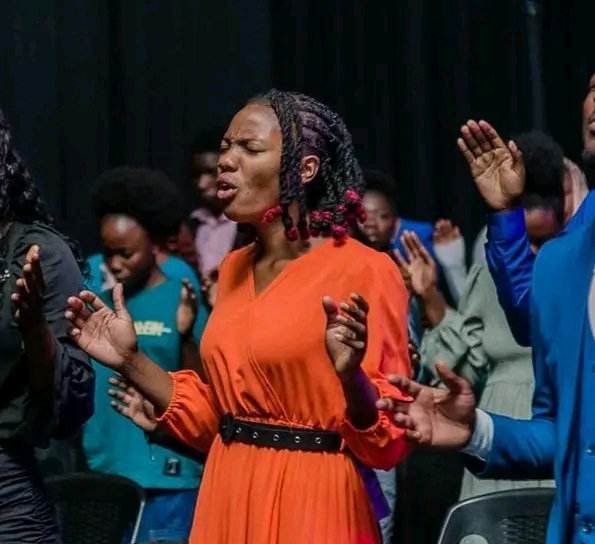Share this
INTRODUCTION TO LAY MINISTRY
Every Christian is a minister in their own capacity
- Paragraph 500 & 503.1 – All Christians should see themselves as ministers of Christ, seeking to know God’s will concerning their role in the church.
What This Means in Simple Terms:Whether or not you’re a pastor, every Christian has a role to play in spreading the gospel and serving others. God can use anyone. - The Church of the Nazarene recognizes a specific ministry of laypersons and affirms their importance in church work (Ephesians 4:11–12).
What This Means in Simple Terms:The church understands that non-pastors (laypeople) can still serve in meaningful ministry roles, and their contribution is seen as valuable and spiritual.
B. ROLES AVAILABLE TO LAYPERSONS
Many ways to serve, even without ordination
- A layperson may be assigned as:
- Pastor
- Evangelist
- Missionary
- Teacher
- Administrator
- Chaplain
- Special service minister
What This Means in Simple Terms:
Even without being ordained, laypeople can be given leadership roles in the church—like preaching, teaching, or working in missions—if they are trained and approved.
- Lay training is usually required or strongly recommended for these roles.
(Manual Reference: 503.1, 605.3)What This Means in Simple Terms:Just like any job needs preparation, lay ministry also needs study and learning. Training helps you serve better and understand your role.
C. WHO IS A LAY MINISTER?
Called to serve, but not ordained
- Paragraph 503.2 – A member who feels called to ministry roles like:
- Church planter
- Bivocational pastor
- Lay evangelist or song evangelist
- Stewardship or church staff minister
What This Means in Simple Terms:
A lay minister is someone who feels led by God to do ministry work—like preaching or music—but doesn’t feel called to become a full-time ordained pastor.
- May pursue a certificate of lay ministry through a validated course of study.
What This Means in Simple Terms:They can take special classes to receive a certificate that shows they are trained and ready to serve.
D. APPROVAL PROCESS FOR LAY MINISTERS
Examination and certification by the local church
- Paragraph 503.3 – Local church board, with the pastor’s recommendation, must assess:
- Personal salvation experience
- Involvement in ministry
- Knowledge of the church’s work
What This Means in Simple Terms:
The church wants to make sure the person really knows Jesus, is already active in church work, and understands how the church operates.
- Paragraph 503.4 – A certificate is issued by the pastor and church board secretary.
What This Means in Simple Terms:If approved, the lay minister is given an official document to confirm their role and responsibility.
E. ANNUAL RENEWAL & EDUCATION
Ongoing growth and accountability
- Paragraph 503.5 – Renewal happens annually if:
- The lay minister completes at least two subjects in the lay training program.
- Annual report is submitted to the church board.
What This Means in Simple Terms:
The lay minister must keep learning and must report back to the church every year to show they’re still active and growing.
F. DISTRICT-LEVEL ASSIGNMENTS
When laypersons serve beyond their local church
- Paragraph 503.6 – For district-level roles like:
- Church planter or supply pastor
- Certification can be issued by the District Advisory Board.
What This Means in Simple Terms:
When a lay minister works across different churches or communities, they need approval and documentation from the district leadership.
- Paragraph 503.7 – Those serving outside their local church are:
- Supervised by the district superintendent
- Report annually to the District Advisory Board
What This Means in Simple Terms:
If a layperson serves outside their home church, the district leaders are in charge of monitoring their work and giving yearly evaluations.
G. ADVANCED STUDY AND SPECIALIZATION
Deeper learning for focused ministry
- Paragraph 503.8 – After completing the main course, the lay minister:
- Continues in a specialized study concentration based on chosen ministry.
- Coordinated through the Continuing Lay Training office.
What This Means in Simple Terms:
After getting the basic training, lay ministers can focus on areas they feel called to—like children’s ministry, evangelism, or music.
H. SACRAMENT LIMITATIONS FOR LAY MINISTERS
Some duties remain for ordained ministers only
- Paragraph 503.9 – Lay ministers:
- Cannot baptize
- Cannot serve the Lord’s Supper
- Cannot officiate marriages
What This Means in Simple Terms:
Some responsibilities—like doing baptisms or weddings—are reserved only for fully ordained ministers.
The Church of the Nazarene deeply values the contributions of laypersons. Through training, local and district appointments, and ongoing accountability, lay ministers are empowered to serve. Yet, they operate within specific guidelines to maintain order and integrity in the church’s mission.




